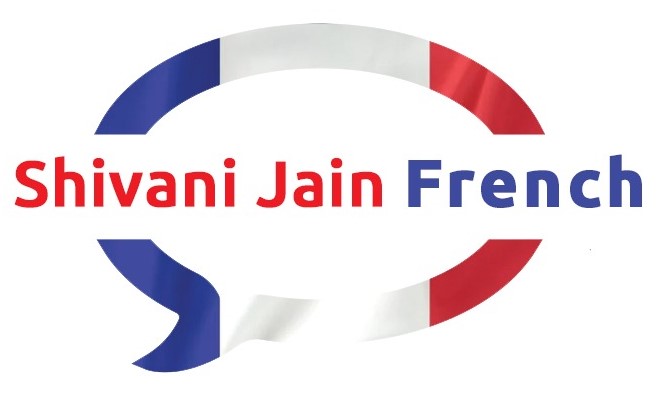
TEF / TCF Canada Test Preparation
Course Overview
If you’re planning to acquire Canada PR (Permanent Residency) or study in France, it’s important to know the difference between the TEF and TCF exams, popularly known as TEF Canada Exam and TCF Canada Exam respectively. Both tests are used to evaluate French proficiency for a non-native French speaker applying for Canada PR, as Canada has two official languages, English and French. Students should check with their center or institution to see which test results they require. While most people opt for TEF Canada Exam but TCF Canada Exam equally carries the same importance to migrate to Canada. Both tests are similar in format and content but may have different time limits and questions.
Wondering which French language test to take?
Look no further! Whether you’re seeking Canadian citizenship or planning to study in Quebec, both the TCF (Test de Connaissance du français pour le Canada) and TEF (Test d’Evaluation du Français) are accepted and verified in Canada. However, it’s important to consult with your center or institution as some may have a preference for one test over the other.
But what sets these exams apart?
While both, TEF Canada and TCF Canada assess French proficiency, they serve different purposes. The TEF Canada exam is recognized as an official language proficiency test for permanent residency by the Ministère de l’Immigration et des Communautés Culturelles du Québec (MICC) and is available in both paper-based and computer-based formats. On the other hand, the TCF Canada exam is mandatory for those looking to immigrate to Quebec and is also recognized by IRCC for Permanent Residency.

Ready To Increase CRS Score?
Her Courses Include
Reading
Writing
Speaking
Listening
TEF & TCF Canada Course

Her French Test Preparation Course for TEF Canada and TCF Canada exams:
- has a duration of 7 months
- small group of learners
- instruction provided in both English and French to understand the concepts better and
- includes support and resources you need to succeed.
Both the program covers all four sections of the TEF/TCF Canada exam: Reading, Writing, Listening, and Speaking.
Additionally, you’ll have access to unique and exclusive course materials, mock tests, sample papers, and result-oriented coaching to give you the best chance of success. Start your journey today!
Want to test your French language skills?
Check out the TCF exam and TEF exam formats!
The TCF exam format includes a compulsory test with three sections: Listening, Proficiency in Language Structures and Reading. The listening section includes 29 questions and takes 25 minutes, proficiency in language structures includes 18 questions and takes 15 minutes, and the reading section includes 29 questions and takes 45 minutes. The total duration for the compulsory test is 85 minutes. Additionally, the TCF exam format also includes an optional test which includes Speaking and Writing. The speaking section includes 3 levels of testing and takes 12 minutes, the writing section includes 3 tasks and takes 60 minutes. The total duration for the optional test is 72 minutes.
The TEF exam format includes a compulsory test with four sections: Listening, Speaking, Reading, Writing and Vocabulary and Syntax. The listening section includes 60 questions and takes 40 minutes, the speaking section includes 2 subjects and takes 15 minutes, the reading section includes 50 questions and takes 60 minutes, the writing section includes 2 topics and takes 60 minutes and the Vocabulary and Syntax section includes 40 questions and takes 40 minutes.

Choose the format that suits you best and get ready to showcase your French language skills!

TEF Exam Syllabus: The TEF exam is divided into four sections: speaking, writing, listening, and reading. The speaking section assesses a candidate’s ability to communicate in French and includes both obtaining information and conversing with someone. The writing section evaluates a candidate’s ability to express a point of view in written format. The listening section includes comprehension of French audio clips, and the reading section tests a candidate’s ability to understand written materials. The vocabulary and syntax section evaluates a candidate’s ability to use correct punctuation and grammar.
TCF Exam Syllabus: The TCF exam also has four sections: listening, grammar and vocabulary, reading and speaking (optional) and written (optional). The listening section includes comprehension of common words and expressions, the grammar and vocabulary section tests a candidate’s proficiency in language structures. The reading section evaluates a candidate’s ability to read and understand conversations or articles. The speaking section is a one-on-one interview with the examiner and the written section includes 3 exercises writing small messages, a letter/message/note and two opinion pieces.
It’s important to note that both TEF Canada exam and TCF Canada exam are equally challenging and success depends on your preparation. It’s recommended to practice with a qualified and experienced French Language Instructor like Shivani Jain and choose the exam that suits your personal needs.
Reasons To Learn
French Language
A world language
More than 300 million people speak French on the five continents. France operates the biggest international network of cultural institutes, which run French-language courses for close on a million learners.
Language for the international job market
The ability to speak French and English is an advantage on the international job market. A knowledge of French opens the doors of French companies in France and other French-speaking parts of the world.

Language for higher education
Speaking French opens up opportunities to study at renowned French universities & business schools, ranked among top higher education institutions in Europe & world.
A language for travel
The ability to speak even a little French makes it so much more enjoyable to visit Paris and all the regions of France, and offers insights into France’s culture and way of life. French also comes in handy when travelling to French-speaking parts of the world.

